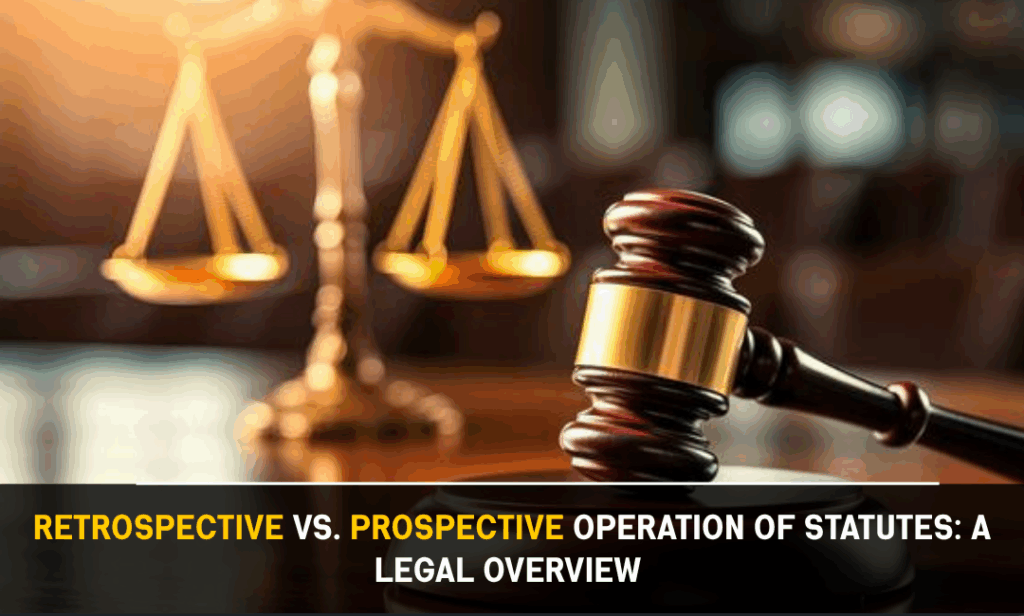Akhya Pandey
In Indian law, understanding whether a statute operates retrospectively or prospectively is crucial. A statute is said to operate prospectively when it applies only from the date it comes into force. On the other hand, it has a retrospective effect when it applies to events that happened before it was enacted.
The default rule is that statutes are presumed to be prospective unless the legislature clearly states otherwise. This is backed by Section 6 of the General Clauses Act, 1897, which protects past rights, obligations, and liabilities unless there’s a contrary intention.
Indian courts have laid down several principles over time. In Govinddas v. Income Tax Officer (1976 AIR 1926), the Supreme Court held that a statute that imposes a new liability cannot be made retrospective unless it is explicitly stated. Similarly, in Hitendra Vishnu Thakur v. State of Maharashtra (1994 AIR 2623), the Court listed guiding principles, emphasizing that substantive rights can’t be affected retrospectively unless the statute says so in clear terms.
The Indian Constitution also restricts retrospective laws in the criminal field. Under Article 20(1), no person can be convicted for an act that wasn’t a crime when it was committed, nor be given a heavier punishment than what was prescribed at that time. This ensures basic fairness in criminal law.
Interestingly, retrospective amendments have frequently appeared in taxation laws, sometimes leading to controversy. A prominent example is the Vodafone case (Vodafone International Holdings B.V. v. Union of India, 2012), where the Court ruled in favour of the company. However, the government passed a retrospective amendment to reverse the effect of the ruling, drawing criticism both domestically and abroad. This move was eventually rolled back in 2021.
Whether it’s about protecting individual rights or ensuring legal consistency, the way a statute operates in time often decides the scope and impact of a law. And that’s why this topic keeps surfacing in legal and policy debates.
Instagram: Click Here.
LinkedIn: Click Here.
For Collaboration and Business: info.desikaanoon@gmail.com.

